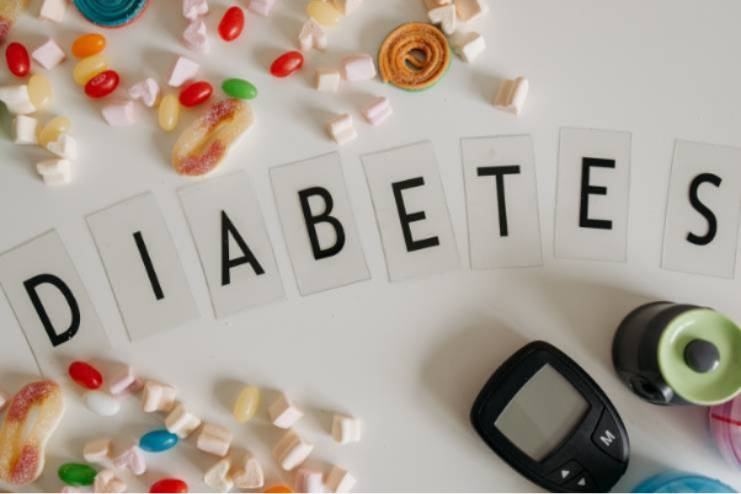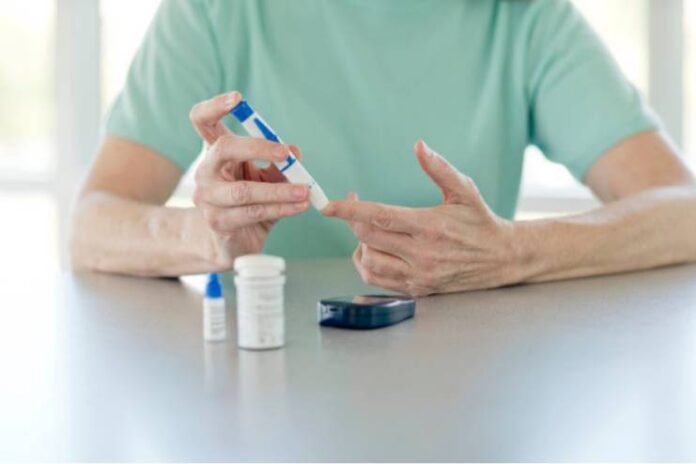Affiliate Disclaimer
Some links in this article are affiliate links. We may earn a small commission if you make a purchase through these links, at no extra cost to you. We only recommend products we find useful to our readersDiabetes is a common disease worldwide. It can happen at any age, but the risk is more significant in people older than 45. Most signs can be the same in both men and women.
You can define diabetes as a disease where the body produces insufficient insulin or has difficulty utilizing it. This results in blood sugar spikes, which can be a risk factor for strokes and heart attacks.
Why Recognizing the Signs of Diabetes is Important
Effective diabetes management and avoiding serious consequences depend on early illness recognition. Early diagnosis and treatment of diabetes, which helps control blood sugar levels and prevent long-term damage to essential organs, can be achieved by recognizing the symptoms of the disease, which include frequent urination, excessive thirst, and unexplained weight loss.
Uncontrolled diabetes can cause significant health problems, such as kidney failure, nerve damage, and heart disease. People can take proactive measures to live a better lifestyle, take their medications as directed, and routinely check their blood sugar by recognizing the signs early on. Being vigilant enhances one’s quality of life and lowers the likelihood of severe consequences, which is why early identification is crucial for effective diabetes care.

Signs Of Diabetes That Should Not Be Neglected
- Increased Thirst And Hunger
- Frequent Urination
- Weight Loss
- Fatigue
- Blurred Vision
- Wounds That Heal Slowly
1Increased Thirst and Frequent Urination

Increased thirst and urination can be an early sign of diabetes. When you have diabetes, excess sugar builds up in the blood because insulin cannot supply the sugar to be absorbed into cells. Your kidneys now have to be responsible for filtering and absorbing the excess sugar accumulated in the blood.
Since your kidneys cannot keep up with the sugar, they excrete it into the urine, gathering all the fluids in the body. This may spark more frequent urination, and you may drink more fluids to satisfy your thirst due to the loss of fluids.
2Weight Loss

Weight loss may be a common sign in people with diabetes. The reason is that the body does not use sugar due to a lack of insulin or insulin resistance. The sugar unused by the cells cannot produce energy and leaves the body via urine. So you lose calories, and this leads to weight loss.
3Fatigue

Fatigue is another common symptom of diabetes. You may need more energy for the body’s functioning since there is no food for the cells. Also, frequent sugar loss through urine can make you fatigued.
4Blurred Vision

Vision impairment is a typical sign of high blood sugar levels in people with diabetes. Increased blood sugar levels can draw extra glucose out of the body’s tissues, including the eye’s lens. It occurs due to the lens’s need for fluid balance for appropriate shape and operation maintenance.
Blurred vision can be caused by the lens swelling, changing shape, and losing its ability to focus light precisely on the retina when it loses fluid. If uncontrolled high blood sugar levels continue over time, there’s an increased chance of developing more severe eye diseases like diabetic retinopathy, cataracts, and even glaucoma.
5Wounds That Do Not Heal

One of the signs of diabetes is wounds that seem to take forever to heal—high blood sugar levels damage nerves and blood vessels – impacting blood circulation. Damaged vessels reduce blood and oxygen flow to the wound site, slowing down the healing process and impairing the body’s ability to repair itself.
Nerve damage caused by diabetes, known as neuropathy, is another factor that contributes to slow wound healing. When individuals have neuropathy, they lose sensation, which means they may not feel pain or notice if they have an injury – leaving wounds untreated, delaying healing, and increasing the risk of infections.
Diabetes also weakens the immune system, making it harder for the body to fight off and heal from infections, further delaying recovery.
For people with diabetes, even minor cuts or sores on the skin can become serious if not promptly treated. If you notice persistent wounds or sores that aren’t healing, it’s crucial to seek medical advice to manage the blood sugar levels and prevent complications.
6Red, Swollen, and Tender Gums

You may experience swollen gums when you have diabetes. Diabetes may weaken the ability to fight germs and infections in your gums and bones holding your teeth. The result may be that your gums may pull away from your teeth, your teeth may become loose, or you may develop sores or pus in your gums.
Consult the doctor, as diabetes can be dangerous when neglected. However, it is fully possible to enjoy a long and fulfilling life by learning how to manage and treat diabetes.
Risk Factors for Developing Diabetes

The risk of getting diabetes, especially Type 2 diabetes, is increased by several variables. Having an unhealthy diet heavy in sweets and fats, being overweight or obese, and living a sedentary lifestyle are some of these.
A family history of diabetes and being older increases the risk as well. A history of gestational diabetes in women, high blood pressure, and high cholesterol are other contributing factors.
By being aware of these risk factors, people can take preventative actions, including eating a healthy diet, exercising more, and routinely checking their blood sugar levels. People aware of these hazards can lower their risk of diabetes and its consequences by making educated decisions.
When to See a Doctor

It’s critical to get medical help right away if you experience any diabetes symptoms, such as chronic exhaustion, increased thirst, frequent urination, or unexplained weight loss. These symptoms might point to elevated blood sugar levels that need to be checked by a doctor. See a doctor if you have blurred vision, sores that take a long time to cure, or numbness and tingling in your hands or feet.
Effective diabetes management and the avoidance of significant side effects, including kidney damage, neurological problems, and heart disease, depend on early diagnosis and treatment. It is essential to pay attention to the symptoms, even if they appear minor or intermittent.
A healthcare professional can conduct the tests required to diagnose diabetes and provide a customized treatment plan, such as A1C testing and blood sugar monitoring. Managing the illness early on can significantly enhance your quality of life and prevent further progression.
Conclusion
Early detection of diabetes symptoms is essential for efficient management and treatment. By being aware of typical symptoms, you can take proactive measures toward an early diagnosis and course of therapy.
Knowing when to seek medical assistance and being aware of risk factors gives you more power to safeguard your health. Awareness of these indicators can lower your chance of severe issues and greatly enhance your quality of life. Always remember that early detection is crucial; if you notice any symptoms, get medical help immediately.
-
Mar 2017Written by Pradeepa Polineni
-
Sep 2024Edited by Ankita



















